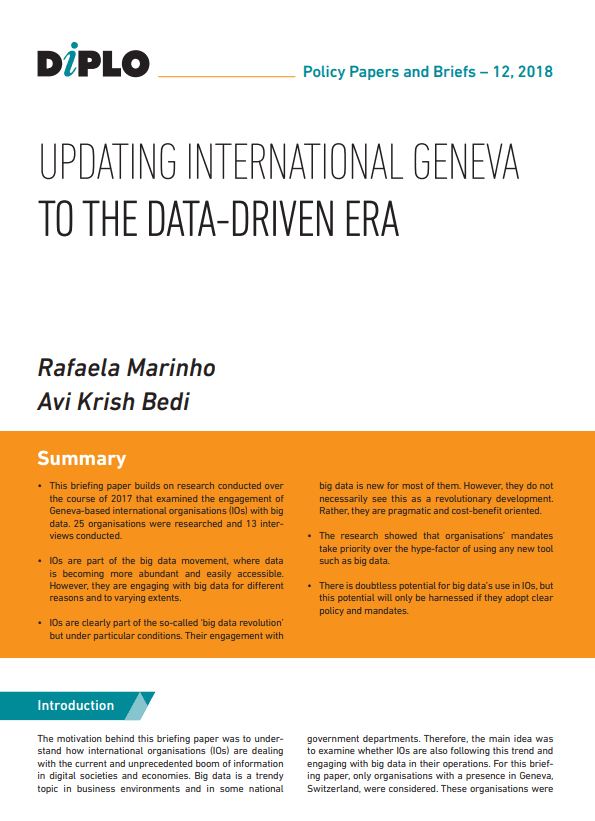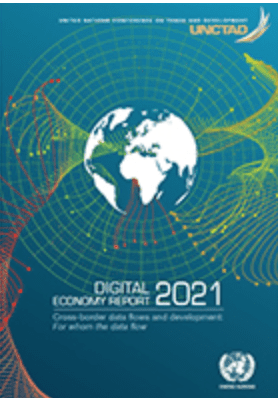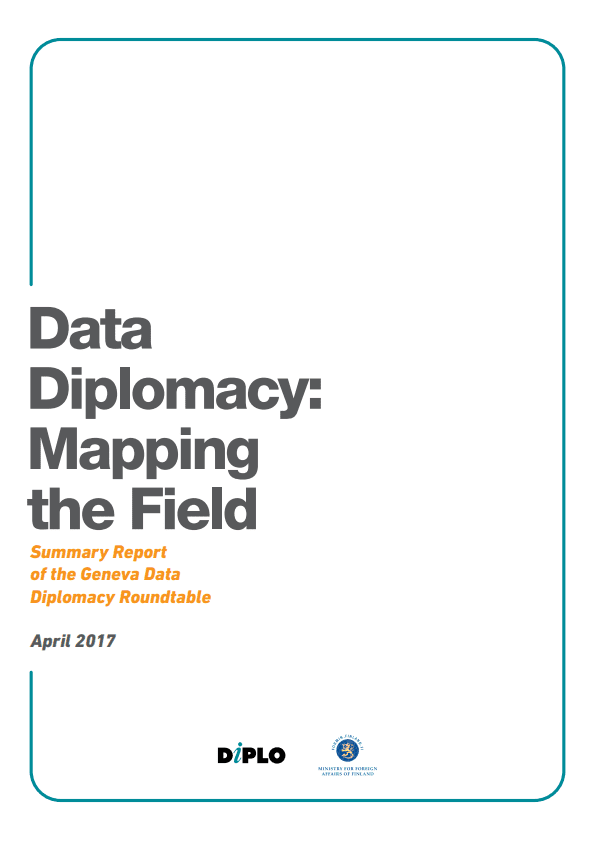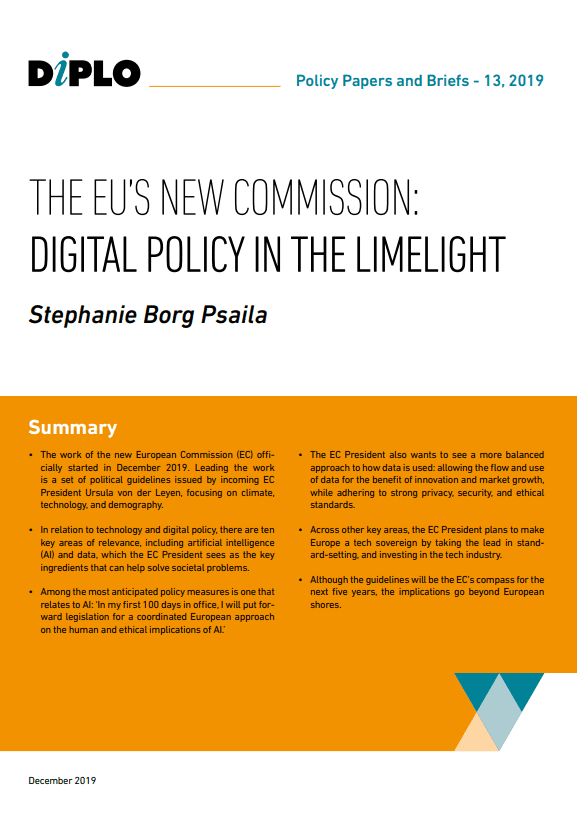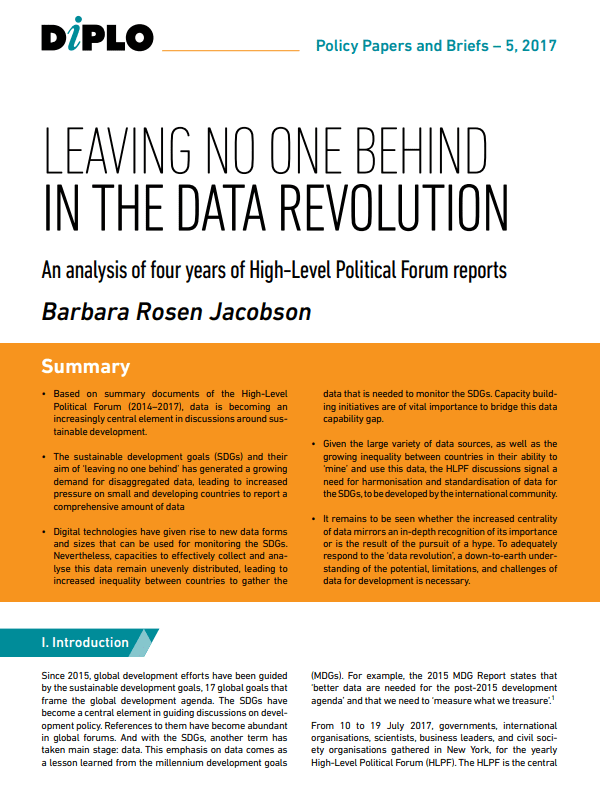Author: Sorina Teleanu
Unpacking Global Digital Compact: Actors, Issues, and Processes

To read the full book please register below
By clicking on the Register button, you are agreeing to our Privacy policy.
If you are unable to register to receive this book, please contact us at diplo@diplomacy.edu.
Explore the Global Digital Compact (GDC)
We support the official GDC process through updates, reports, and in-depth analysis available in:
- ‘Unpacking the Global Digital Compact’ book by Sorina Teleanu
- Annotated text of the GDC
- The GDC process page with info of drafting history, actors, etc.
- AI chatbot for GDC
Please let us know if you have question or suggestion of our coverage of the GDC process via geneva@diplomacy.edu
About the Book
This publication, Unpacking the Global Digital Compact, aims to provide a thorough exploration of the GDC within the broader context of global digital governance. It offers both high-level overviews and detailed reflections, looking at the evolution of the GDC’s text, its foundational elements, and areas requiring critical consideration.
1.1. Navigating this publication: How we structure the content

Throughout the GDC process, the Geneva Internet Platform (GIP) – operated by Diplo – has carefully followed the evolution of the Compact and provided regular briefings for Geneva-based diplomats to help unpack the various drafts. This publication builds on a set of slides prepared for one such briefing at the end of the GDC process. Each section is therefore accompanied by one or several slides, whose content is expanded on in the text.
This publication embarks on a comprehensive exploration of the GDC, while also placing it within the broader digital governance ecosystem. To explore the significance and potential of the GDC, we will approach the subject in two stages, each offering a separate, but complementary lens through which to view this important global initiative.
Zooming out: Mapping the broader context
Before looking at the GDC itself, it is important to understand the historical and institutional landscape that led to its creation. The GDC does not exist in a vacuum. It is the result of a long evolution in the field of global digital governance, which has been shaped by key milestones, challenges, and the efforts of multiple actors over the years.
In this first part of the publication we will zoom out, mapping the key milestones in the global digital governance architecture, such as the WSIS processes, the establishment of the Internet Governance Forum (IGF), and the development of the Roadmap for Digital Cooperation by the UN Secretary-General.
By setting the GDC within this broader context, we not only provide a foundation for understanding the compact itself, but we also trace how it fits into ongoing global efforts to address the pressing issues surrounding digital inclusion, governance, and the ethical use of technology. We will highlight how these earlier frameworks — particularly WSIS — paved the way for the GDC.
Zooming in: Detailed analysis of GDC sections:
Once the stage has been set, we will zoom in on the specific provisions of the GDC. This part of the publication is designed to offer a detailed analysis of each section of the Compact, breaking down its commitments, explaining their significance, and reflecting carefully on what is being said or not said.
In addition to looking at what was agreed on, we also provide insights into elements that were controversial during negotiations, showing how these controversies have shaped the various versions of the text.
Furthermore, we will examine the connections between different provisions of the Compact, and bring together elements from different sections in order to provide a better understanding of how specific topics (such as competition or multilingualism) are tackled throughout the document.
As we unpack GDC provisions, we will also focus on issues related to implementation, addressing potential ambiguities, practical challenges, and interpretation issues that may arise. Our aim is to foster an informed dialogue towards ensuring that these commitments effectively translate into actions advancing the desired digital future.
Additionally, particular attention will be paid to the relevance of GDC provisions for International Geneva, where many key organisations and discussions related to global governance are based. These references will be highlighted in dedicated sections titled International Geneva and the GDC, providing readers with an indication of how the work being done in Geneva aligns with and could contribute to the achievement of GDC goals, objectives, and commitments.
Because the GDC is part of broader intergovernmental agreement – the Pact for the Future – it is important to also look at it from these wider perspectives. So, as we explore GDC provisions, we will also make several references to particularly relevant parts of the Pact.
Enhancing readability: Colour-coded texts for clarity
To make the publication more accessible and easier to navigate, we have adopted a colour-coded system that will guide the reader through the various elements of the GDC:
- Blue is used to highlight the core elements of the GDC’s provisions. These are the building blocks of the Compact – fundamental elements that form the basis of the GDC’s vision.
- Orange is used to mark elements requiring critical reflection. These could be provisions that were highly debated during negotiations, that say more than they appear to be saying, or that could present complex challenges for implementation. Readers are encouraged to consider these elements carefully, as they often reveal deeper tensions or unresolved issues in the global digital governance debate.
This approach not only helps in breaking down complex information but also allows readers to engage more actively with the text, identifying key areas for reflection and further consideration.
1.2. Bringing it all together
We end the publication with a chapter to recapitulate key GDC provisions around issues such as commitments by governments, calls on the private sector, mechanisms and processes created through the Compact, and a timeline of next steps (with a focus on the (potential) interplay between the follow-up and review of the GDC, WSIS outcomes, and the 2030 Agenda for Sustainable Development).
This publication is organised in such a way as to provide a thorough and engaging exploration of the GDC. By starting with a broad overview of the digital governance ecosystem and then narrowing in on the specific details of the GDC, we aim to offer readers both context and clarity. The colour-coded system, Geneva-focused sections, and the recapitulation section will ensure that the book remains both informative and accessible, encouraging critical engagement with the important issues surrounding the future of global digital governance.

To read the full book please register below
By clicking on the Register button, you are agreeing to our Privacy policy.
If you are unable to register to receive this book, please contact us at diplo@diplomacy.edu.

